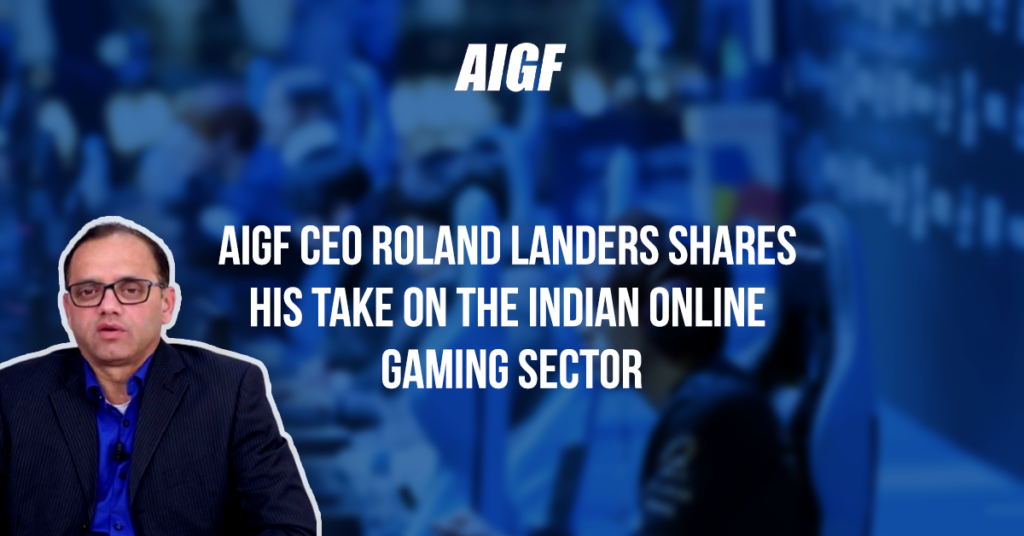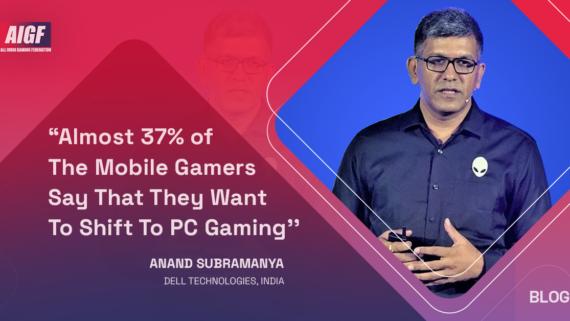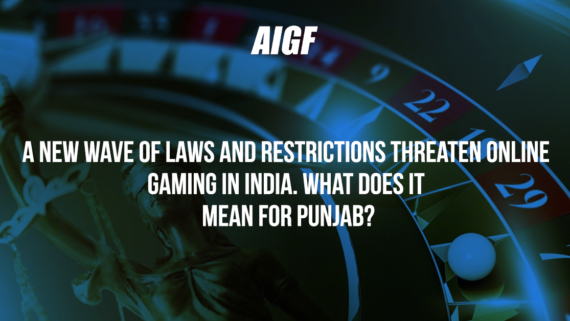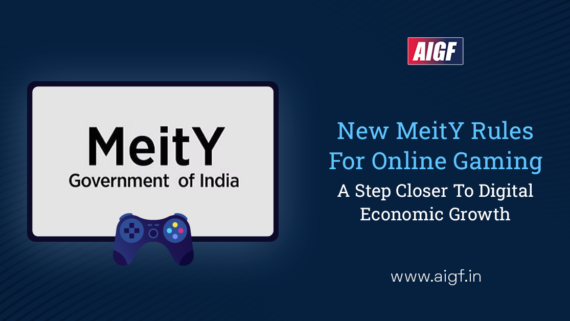In discussion with AnimationXpress, All India Gaming Federation (AIGF) CEO Roland Landers, shared that the development relies upon different aspects.
AIGF CEO Roland Landers Shares His Take On The Indian Online Gaming Sector
The online gaming industry is soaring in India and due to the lockdown, the sector has seen an even dramatic growth! Because of the speedy development in the industry, many believe the sector is likely to outperform the numbers of the US and China.
In discussion with AnimationXpress, All India Gaming Federation (AIGF) CEO Roland Landers, shared that the development relies upon different aspects.
He said, “This entirely depends on the parameters being considered. As per industry statistics, India had the highest mobile game usage and a CAGR of 6.3 percent in 2020. However, in terms of the number of gamers, India is behind the US and China, while in terms of market size, India is the sixth-largest, behind China, the US, Japan, South Korea, and the United Kingdom.”
What are the online gaming patterns in 2021?
The Online Gaming Sector in India has seen outstanding development in the recent couple of years and now has a user base of around 360 million, which is projected to grow faster than the worldwide online gaming segment. Online gaming and streaming have seen a new high, with game-play expanding three-folds on the online platform, numerous online skill gaming platforms reporting three times more user engagement and higher traffic in mobile gaming. Some of the greatest patterns in 2021 are:
- Gaming is becoming more interactive, immersive, and social
- Gaming technologies have become more affordable
- The emphasis has shifted to localized themes and games. Many indigenous game developers are building titles in multiple local languages for customized content
- The introduction of cloud gaming services such as Arcade and Stadia
- Advancement in augmented reality (AR) and virtual reality (VR)
- Smartphone accessibility with affordable and faster internet connectivity
- Growth of Digital Ecosystem for payments
- Growing investments
- Increased recognition and growing popularity amongst youngsters have made it a valuable career option
A couple of Indian states have restricted online games of skills, aligning them with gambling. What is your perspective on this?
Despite the fact that the online gaming industry is seeing vigorous development for businesses and player adoption, there still is an absence of understanding and awareness. Online skill gaming can’t be named as gambling on the grounds that it is subscription-driven or has an entry charge. The Supreme Court and various High Courts have repeated on various occasions that online games of skill are not gambling, but protected under Article 19(1)(g) of the Constitution.
Nonetheless, gaming is a ‘State’ subject under the Constitution and regulated by each state respectively. While online skill-based games are allowed in many states, the lack of comprehensive regulations in this sector makes the subject complex. Likewise, most of the State Gaming Acts and the Central Gaming Act are age-old and were brought into effect much before the evolution of the Internet. In addition, differing state’s understanding of online skill games makes it hard to build scale for businesses.
While there is no doubt that the illegal betting and gambling websites that advertise and operate obtrusively across states should be prohibited, unfortunately, also impact the online skill gaming businesses, which are listed Indian companies that pay direct and indirect taxes. Further, the online gaming businesses in India are growing at a faster pace than the worldwide gaming section, making it an extraordinary hotspot for job creation and income generation for the country.
Thus, as an industry body, the All-India Gaming Federation (AIGF) is focused on creating awareness among significant stakeholders through industry reports, knowledge papers, conferences, and events. Since its commencement in the year 2016, AIGF and its advisory board members have been at the forefront, working with significant policymakers to show the separation of online skill-based gaming and highlight the economic and social advantages that build from the online skill gaming industry.
What is your opinion on the growth in fantasy sports, especially around cricket season?
Fantasy gaming is one of the fastest-growing gaming segments in India with a user base of around 100 million, which is expected to reach 150 million in a couple of years. It is anticipated to be the fifth-biggest fantasy sports market on the planet. As fantasy sports are connected to live sporting activity, cricket, which is the main game, gains dominance.
Does real-money gaming involve gambling? Please share your opinion.
No—there is a vast difference between the two. Even though games of skill are played for cash, this doesn’t make them gambling or betting. The Indian regulatory framework has separated the game of skills and the game of chance. The game of chance is viewed as gambling as it includes luck, instead of skill, which is why these are expressly prohibited by the law, wherein the game of skill is considered lawful across most states including digital and online.
Even though the line between the two seems hazy, when studied in-depth, the game of skills totally has a completely different persona.
As per AIGF, what are the challenges that the online gaming sector is facing? How can we overcome the challenges faced by the skill-gaming industry?
Just like any other new industry, vertical or sector to be introduced to the market, challenges are consistently present well in advance. For online gaming, there is the ambiguity of perception amongst the public because of inadequate information about the online gaming sector.
At present, the gaming business follows a self-regulatory model, which includes necessary checks and balances to ensure responsible gaming and the protection of gamers. Regulating this booming sector can boost investment trends in states, create jobs, and contribute economically.
Throughout the long term, the Indian gaming industry has been attempting to bring due regard to this lucrative sector. As an industry body, AIGF has been at the forefront of guaranteeing worldwide prescribed procedures for its partners through self-guideline and the Skill Games Charter, which covers all aspects of the online business process. AIGF’s self-regulatory mechanism needs to be recognized and strengthened for uniformity.
Some of the initiatives that need to be considered are: instead of taking restrictive actions against online skill gaming, States should collaborate positively with industry stakeholders to develop a regulatory model that is in the best interests of all parties involved. AIGF and its advisory panel of domain experts have offered to assist in playing a consultative role with the relevant policy-makers for this.
How can we empower and inform people that a game of skill is not a game of chance and all real-money gaming does not necessarily involve gambling?
The Indian gaming industry has been attempting to bring due attention to some significant issues facing the sector:
- Spreading awareness at the State level, where differentiation needs to be made between illegal gambling and betting and online skill gaming
- In the absence of central regulation, endorse the self-regulation mechanism of the AIGF (called the AIGF Skill Games Charter), so that there is uniformity
- Use the AIGF advisory panel experts to assist in working with the State regulators for creating an effective regulatory framework for online skill gaming
Where is online gaming heading in the next five years?
The online skill gaming industry has been consistently growing in abundance at a 30% CAGR over the past couple of years. According to the EY-FICCI Report of 2021, the online gaming section grew 18% in 2020 to arrive at Rs 7.7 billion, as online gamers expanded by 20% from 300 million out of 2019 to 360 million, transaction based game revenues expanded by 21% because of fantasy sports and casual gaming revenues increased by 8%, led by in-app purchases.
It is estimated that the online gaming industry will continue to develop and reach 500 million gamers by 2025 to become the third-largest fragment of the Indian M&E sector. We feel that with the support of the relevant policymakers across the States and the Center, India can become an online gaming superpower in the near future.











Comments
Comments are closed.